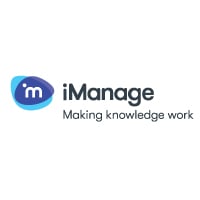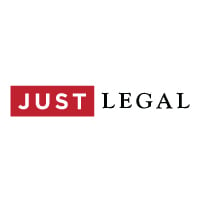
Senior manager, labour and employment law lead | Accenture






Akiko Oguchi
Senior manager, labour and employment law lead | Accenture
What are the most significant cases, projects and transactions that you and your legal team have recently been involved in?
Over the past year, my legal team has dealt with several serious claims from our employees against the company for work-related accidents. Work-related accidents (among other personnel matters of our employees) often involve significant risks which are not only legal risks but also business risks that can significantly undermine the company’s reputation. Given the nature of those claims with diverse background facts, there is no single “right answer” or “correct way” as to how we should proceed each case and how we should solve or settle. That is the strategy my team would need to develop with careful consideration based on our expertise, fitting in with the company’s policies and directions, which is not necessarily written anywhere in laws or regulations.
In these significant risk cases, it is always necessary to obtain appropriate “buy-ins” from various stakeholders, including internal and external. Our internal stakeholders include not only Accenture Japan’s management but also senior leadership of Accenture global with different backgrounds and cultures. While deep legal knowledge and expertise are a fundamental prerequisite, high communication skills or diplomacy are also required to gain understanding from those leaders of what we think is the best strategy for the company.
External stakeholders include not only claimants (employees) and relevant authorities or the court, but one of our key external stakeholders is our outside counsel. In these risk cases, how we communicate with outside counsel is important. We cannot simply follow what they say. On the contrary, we need to select the best lawyers in this relevant area, appropriately to handle and own their advice. We clearly communicate our strategy that is in line with the company’s direction. Careful assessment and judgement are required as to whether their advice is the best solution for us.
How do you approach managing legal aspects during periods of instability or crisis to ensure the organisation’s resilience?
There are mainly two things that I think are important in times of instability or uncertainty to ensure the organisations’ resilience.
One thing is to set appropriate priorities in accordance with the risk level of each case. I need to focus my team’s efforts on important areas with higher risk levels. For those areas, mishandling of one single case could lead to risk across the entire company. We would therefore need to take cost (time and resources) for careful consideration to manage the risk appropriately. On the other hand, there are areas with lower risk levels – i.e., even if not handled perfectly, it would not directly lead to the company’s risk entirely. They will not be fatal by any means, which are areas where we should not take too much cost so that we could pour more effort and energy into other priorities.
Another thing is to involve business stakeholders necessary to solve the issues. There are many issues in the organisation that cannot be resolved by us, legal professionals, alone. For example, the implementation of proposed risk mitigation measures would require commitment from the company. If there are business costs (internal procedures, resource allocation from business etc), relevant business leaders should be communicated for their understanding and involvement in a timely manner. To obtain “buy-ins” and effectively collaborate with business, it always needs careful consideration on a case-by-case basis as to whether business should be involved in the first place, and if so, who should be key stakeholders and appropriate timing when they should be involved.
What strategies do you employ to ensure the successful digital transformation of a legal department while maintaining compliance with your country’s data protection laws?
While it is important to maintain compliance of relevant laws including data privacy and business information protection, I think it important to firstly try and utilise evolving digital tools even from a small scale without looking for any reasons why we should not do so. As business rapidly proceeds with digital transformation, legal professionals (ourselves) also need to advance digital transformation. Otherwise, we would eventually be forced to give advice without fully understanding the business. Moreover, it is expected that in the next five to ten years, an increasing number of legal skills / professionals will presumably be replaced by AI.
Have you had any experiences during your career as a lawyer that stand out as particularly unique or interesting?
I started my in-house career in the tobacco industry, which was introduced by my colleague of Freshfields (from 2010 to 2016) who had been working at Philip Morris. That was about a time when tobacco, which had been a very simple commodity, was being transformed into a completely new type of product, with the electronic device of heated tobacco, just entering the market. Rather than applying the existing rules and regulations, we had to set our responsible internal rules which helped the government and the industry shaping up the new external regulations.
While traditional tobacco products have very strictly been regulated (e.g., restricted pricing and packaging), the heated tobacco was a somewhat “lawless area”. However, doing responsible business / self-restrictions was very important for business continuity and sustainability especially given the nature of the product. Although there was certain resistance from business at that time, which was tough and challenging, the experiences at Phillip Morris were so valuable in looking for a “middle ground”, which became the foundation of my current style as an in-house counsel.
What factors influence your team’s decision to use external legal services versus handling matters in-house, and what criteria are used to evaluate their performance?
As we are a team that specialises in labour and employment areas, we handle many cases internally with our own expertise. However, for cases that could develop into a major risk for the company, we seek support from outside counsel for the risk assessment to appropriately judge the likelihood of winning or losing the case, what other possible challenges it could develop into, etc. and to make a careful decision based on that assessment. We also utilise outside counsel’s knowledge to find out what approaches external companies are taking in new legal areas having no established practices to shape our own approaches and directions under uncertainty.
For their performance evaluation, it is important that we receive balanced advice based on the company’s position, which should be persuasive enough both for our internal and external stakeholders. We cannot adopt too conservative advice that is far from the company’s position, while we cannot rely on their advice if that simply aims to align with us. We need careful judgement whether the advice is balanced with sufficient considerations reflecting all pros and cons, and persuasive enough for all our stakeholders.